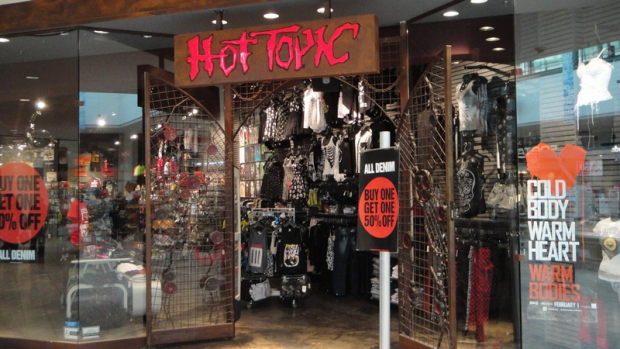"Unanticipated" Consequences
One of the largest consequences of the punk aesthetic is the debate over "what is punk?," especially in this postmodern age which argues that there are multiple perspectives for everything. But what is punk, especially in the modern age?
Eugenia Williamson, in her peer-reviewed article, "Punk Crock: Whistling Eternal Yesterday" briefly addresses this issue using well-known celebrity, Miley Cyrus and her attitudes and aesthetic years after her appearances on Disney channel. Williamson recounts Vice Media's Noisey post titled "Miley Cyrus Is Punk as Fuck" and the response of John Law, through his Facebook:
" Miley is punk in the sense that she's not afraid to piss off the establishment and rebel against the bourgeois values of the mainstream and say FUCK YOU to people who expect from her to conform to what it is to be the ideal role model for little girls- and since she's success fully (sic) managed to enrage millions (including all the haters in this comment thread) with her twerking and naked Wrecking-Ball Riding, she's successfully pissed off the establishment, and that's pretty fucking punk y'all!" (Law, Vice, Noisey, post.5)
This opinion is further supported through SWMR's, a pop punk band's song "Miley" (and song "Hannah") and through their music video, which shows visuals of Miley Cyrus surrounded by pillars of punk aesthetic: sex, indifference, and parody (of Disney channel's opening sequences). These videos and posts both argue that she is aligned with the punk aesthetic because she chooses to become "something" that society didn't want, but the idea remains, is punk so concrete that one immediately knows what punk is? Punk seems to be a constantly changing atmosphere based on the central nonconformist ideology, does punk retain meaning?
Issue #2: Then there is the commodification of punk in stores like Hot Topic. While one may argue that the materialism of stores like Hot Topic are more goth than anything else, these stores are selling punk aesthetic value: dark clothing, ripped clothing, and all to avoid looking like everyone else. The irony exists in the conception of these stores, if they sell "art" loosely expressed through clothing, posters, and etc. for mass consumption, that isn't a punk value anymore. Is it possible to still remain punk even if your art is no longer authentic and/or now mass produced?
Williamson, Eugenia. “Punk Crock: Whistling Eternal Yesterday.” The Baffler, no. 29, 2015, pp. 110–119., www.jstor.org/stable/43959249.
Eugenia Williamson, in her peer-reviewed article, "Punk Crock: Whistling Eternal Yesterday" briefly addresses this issue using well-known celebrity, Miley Cyrus and her attitudes and aesthetic years after her appearances on Disney channel. Williamson recounts Vice Media's Noisey post titled "Miley Cyrus Is Punk as Fuck" and the response of John Law, through his Facebook:
" Miley is punk in the sense that she's not afraid to piss off the establishment and rebel against the bourgeois values of the mainstream and say FUCK YOU to people who expect from her to conform to what it is to be the ideal role model for little girls- and since she's success fully (sic) managed to enrage millions (including all the haters in this comment thread) with her twerking and naked Wrecking-Ball Riding, she's successfully pissed off the establishment, and that's pretty fucking punk y'all!" (Law, Vice, Noisey, post.5)
This opinion is further supported through SWMR's, a pop punk band's song "Miley" (and song "Hannah") and through their music video, which shows visuals of Miley Cyrus surrounded by pillars of punk aesthetic: sex, indifference, and parody (of Disney channel's opening sequences). These videos and posts both argue that she is aligned with the punk aesthetic because she chooses to become "something" that society didn't want, but the idea remains, is punk so concrete that one immediately knows what punk is? Punk seems to be a constantly changing atmosphere based on the central nonconformist ideology, does punk retain meaning?
Issue #2: Then there is the commodification of punk in stores like Hot Topic. While one may argue that the materialism of stores like Hot Topic are more goth than anything else, these stores are selling punk aesthetic value: dark clothing, ripped clothing, and all to avoid looking like everyone else. The irony exists in the conception of these stores, if they sell "art" loosely expressed through clothing, posters, and etc. for mass consumption, that isn't a punk value anymore. Is it possible to still remain punk even if your art is no longer authentic and/or now mass produced?
 |
|
|
Williamson, Eugenia. “Punk Crock: Whistling Eternal Yesterday.” The Baffler, no. 29, 2015, pp. 110–119., www.jstor.org/stable/43959249.